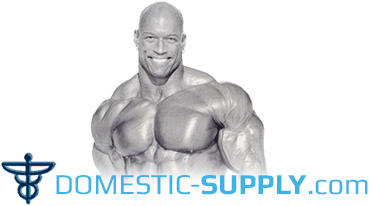Exploring Corticosteroids' Advantages in Bodybuilding Regimens
The realm of bodybuilding constantly seeks efficacious strategies to optimize muscle growth and endurance. This article delves into the potential benefits of incorporating corticosteroids into bodybuilding regimens.
As potent anti-inflammatory agents, corticosteroids offer intriguing possibilities, including enhanced muscular development and endurance. However, their use warrants careful consideration due to associated health risks.
Through a comprehensive analysis of scientific literature, this article aims to elucidate the role of corticosteroids in bodybuilding, their potential advantages, and the imperative of their responsible use.
Key Takeaways
- Corticosteroids, specifically glucocorticoids like cortisol, have anti-inflammatory and immunosuppressive properties that can aid in muscle recovery and reduce inflammation.
- Corticosteroids can enhance protein synthesis and muscle repair, leading to increased muscle mass and improved endurance.
- Responsible use of corticosteroids is crucial in bodybuilding due to associated health risks such as glucose intolerance, fluid retention, and increased vulnerability to infections.
- Regular medical supervision, adherence to recommended dosage, and following strict cycles are important in managing the potential side effects and balancing corticosteroid usage with training and nutrition.
Understanding Corticosteroids
Corticosteroids, a class of steroid hormones, play a crucial role in a variety of physiological processes, including immune response and metabolism regulation. They are produced in the adrenal cortex, a part of the adrenal gland, and are often categorized into two main types: glucocorticoids and mineralocorticoids.
Glucocorticoids, such as cortisol, have potent anti-inflammatory and immunosuppressive properties and play a vital role in maintaining the body's homeostasis. They help in the regulation of the body's response to stress, modulation of metabolism, and the functioning of the cardiovascular system.
On the other hand, mineralocorticoids like aldosterone help regulate sodium and potassium balance, thereby maintaining blood pressure and fluid balance. They work by acting on the cells of the renal tubules, promoting the reabsorption of sodium and water and the excretion of potassium.
Corticosteroids also have significant therapeutic applications. They are widely used in the treatment of a variety of conditions like asthma, allergies, autoimmune diseases, and in the management of inflammatory conditions. They work by reducing inflammation, suppressing the immune system, and reducing the activity of the body's immune response. However, the use of corticosteroids is regulated carefully due to potential side effects, which may include osteoporosis, hypertension, and diabetes.
Understanding the functions and potentials of corticosteroids is key to exploring their benefits and drawbacks in varying fields, including bodybuilding regimens. The knowledge of how they work at the cellular level, their physiologic effects, and the potential risks associated with their use is essential for their effective and safe application.
Corticosteroids' Role in the Body
The functionality of corticosteroids within the human body encompasses a wide array of physiological processes, from immune response modulation to metabolic regulation. These steroids, produced by the adrenal cortex, are fundamentally critical in maintaining homeostasis, the body's stable internal environment.
Corticosteroids are broadly classified into two categories—glucocorticoids and mineralocorticoids—each serving distinct roles. Glucocorticoids, such as cortisol, regulate the body's response to stress and modulate inflammation, immune responses, and certain aspects of metabolism. For example, cortisol boosts glucose production through gluconeogenesis, aiding in energy provision during stressful situations. It also suppresses various immune responses, mitigating excessive inflammation and tissue damage.
On the other hand, mineralocorticoids, principally aldosterone, maintain electrolyte and water balance in the body. Aldosterone acts mainly on renal cells, promoting sodium and water reabsorption while facilitating potassium excretion. This process ensures the regulation of blood volume and pressure, critical for normal cardiovascular function.
Furthermore, corticosteroids influence mood and behavior. They interact with glucocorticoid receptors in the brain, impacting mental processes, memory, and emotional responses. This interaction underscores the potential psychological effects of corticosteroid use, such as euphoria or depression.
In summary, corticosteroids perform crucial roles spanning multiple body systems. Their diverse functionality underscores their significance in physiological homeostasis. Understanding these roles is key to comprehending the potential impacts and benefits of corticosteroids in bodybuilding regimens and beyond.
The complex interplay of these steroids within the body's systems underscores their fundamental importance in maintaining health and well-being.
Bodybuilding: An Overview
In the realm of physical fitness, bodybuilding emerges as a discipline dedicated to muscle hypertrophy, strength enhancement, and overall physique improvement. This physically intensive activity involves the systematic training of specific muscle groups to achieve desired proportions and definition. Bodybuilders primarily focus on resistance training exercises, such as weightlifting, to strain the muscles beyond their normal capacity. This strain results in microscopic tears in the muscle fibers, which triggers the body's repair response.
The body's reparative process involves the synthesis of new proteins to replace damaged ones and strengthen the muscle fibers, leading to muscle hypertrophy. This cycle of damage and repair, fueled by a protein-rich diet and adequate rest, is a fundamental principle of bodybuilding.
Moreover, bodybuilders aim for a low body fat percentage to accentuate muscular definition. This is often achieved by combining resistance training with a controlled diet and potentially, periods of cardiovascular exercise.
However, bodybuilding is not solely a physical endeavor. It also requires a substantial degree of mental fortitude. Consistency, patience, and the ability to endure physical discomfort are essential to achieving bodybuilding goals.
Bodybuilding's benefits extend beyond aesthetics. Regular resistance training strengthens the bones, improves metabolic health, enhances physical performance, and boosts mental well-being. However, it also carries potential risks, especially when pursued excessively or without proper guidance.
Corticosteroids in Bodybuilding: The Science
Delving into the role of corticosteroids in bodybuilding, it becomes apparent that these potent compounds hold significant influence over the body's inflammatory responses and metabolic functions, two factors crucial in muscle development and recovery.
Corticosteroids, produced naturally in the adrenal glands and synthetically in labs, are classified into glucocorticoids and mineralocorticoids. In the context of bodybuilding, glucocorticoids are the primary focus due to their involvement in protein metabolism and inflammation control.
Glucocorticoids operate by passing through cell membranes and binding to cytoplasmic receptors. This coupling initiates a cascade of genomic responses that suppress inflammatory genes and stimulate anti-inflammatory proteins. This process reduces swelling and discomfort post-workout, thus enhancing the recovery phase.
Moreover, glucocorticoids play a substantial role in protein, carbohydrate, and fat metabolism. They stimulate gluconeogenesis — the production of glucose from non-carbohydrate sources — in the liver, ensuring energy availability during strenuous workouts. Concurrently, they promote protein breakdown in muscle tissues and fat mobilization in adipose tissues. While this catabolic effect might seem counterintuitive for muscle-building, it is a necessary biological response to stress, providing the energy needed for intense physical activity.
Controversially, glucocorticoids' catabolic effect can lead to muscle atrophy if not carefully managed. Therefore, while corticosteroids can aid in managing inflammation and providing energy during workouts, their usage in bodybuilding must be carefully regulated to avoid detrimental effects on muscle mass.
Understanding the science underlying corticosteroids' actions is, therefore, paramount in leveraging their benefits while mitigating potential drawbacks in bodybuilding regimens.
Benefits of Corticosteroids in Muscle Growth
Harnessing the power of corticosteroids can yield notable benefits in muscle growth, provided their usage is judiciously managed and balanced with appropriate training and nutrition. Corticosteroids, a class of steroidal hormones, have been associated with increased muscle protein synthesis and decreased protein degradation, leading to an overall net gain in muscle mass. This occurs as the corticosteroids bind to glucocorticoid receptors in muscle cells, triggering a sequence of events that culminate in the increased synthesis of muscle proteins.
Further, corticosteroids exert anti-inflammatory effects, which can be beneficial in bodybuilding. Intense training often results in muscle inflammation and damage, which can hinder performance and progression. By reducing inflammation, corticosteroids can facilitate faster recovery, allowing for more frequent and intense training sessions.
Additionally, corticosteroids are known to enhance the body's ability to handle stress. This can prove advantageous in bodybuilding, as training often imposes significant physical stress on the body. Enhanced stress resilience can lead to improved exercise performance and greater gains in muscle mass over time.
However, it is crucial to note the potential side effects and risks associated with corticosteroid use, such as hormonal imbalance, weakened immune system, and potential for addiction. Therefore, their use should be under the guidance of a healthcare professional.
Enhancing Endurance With Corticosteroids
Building upon the benefits of corticosteroids in muscle growth and recovery, their role in enhancing endurance in bodybuilding demands equal attention. The use of corticosteroids in bodybuilding has been linked to increased endurance levels, which is a critical factor in effective training and competition.
Corticosteroids have been found to stimulate the body's response to stress, including physical exertion, by enhancing the body's use of energy sources. This, in turn, can lead to improved performance and increased ability to sustain longer and more intense workouts.
Here are some key ways corticosteroids can enhance endurance in bodybuilding:
- Corticosteroids are known to increase the body's glucose utilization, which provides the energy required for sustained physical activity.
- They reduce inflammation, allowing for faster recovery post-workout and hence, increased frequency of training sessions.
- Corticosteroids enhance the delivery of oxygen to muscles by increasing red blood cell production, thereby supporting longer periods of exercise.
- They can stimulate the central nervous system, enhancing focus and determination, which are crucial in enduring strenuous workouts.
- Corticosteroids can also help to manage pain and discomfort during intense training sessions, enabling bodybuilders to push their limits.
However, it's vital to note that while corticosteroids can provide these benefits, they should be used responsibly and under medical supervision. The misuse of these substances can lead to negative side effects, such as hormonal imbalances, immune system suppression, and psychological effects.
Therefore, a balanced approach, considering both the benefits and potential drawbacks, is essential when incorporating corticosteroids into a bodybuilding regimen.
Potential Risks and Side Effects
In evaluating a bodybuilder's use of corticosteroids, it's crucial to consider the potential risks and side effects associated with these substances. Corticosteroids, while beneficial in certain respects, can pose significant health hazards if misused or used over an extended period.
The most common adverse effects include glucose intolerance leading to hyperglycemia, fluid retention causing hypertension and edema, and an increased vulnerability to infections due to immunosuppression. Moreover, corticosteroids may lead to Cushing's syndrome, characterized by rapid weight gain, central obesity, and a round face. Other potential side effects include osteoporosis, glaucoma, cataracts, and mood swings.
Furthermore, research indicates that prolonged usage of corticosteroids can cause serious cardiovascular complications, such as heart disease and stroke. The risk is heightened in bodybuilders due to their high-protein diets and intense training regimens, which already strain the cardiovascular system.
Corticosteroids can also have detrimental effects on mental health, contributing to psychiatric disorders like depression and anxiety. These effects are often overlooked, but they can significantly affect a bodybuilder's quality of life and performance.
Lastly, corticosteroids can lead to hormonal imbalances, impacting the body's natural production of hormones like testosterone. This hormonal disruption can result in a range of symptoms, from decreased libido and erectile dysfunction to infertility.
Responsible Usage of Corticosteroids in Bodybuilding
Navigating the tightrope of responsible corticosteroid usage in bodybuilding requires a balanced and informed approach, mindful of the potential health implications outlined previously. Steroids, while offering remarkable physique enhancements, can also trigger adverse health reactions if misused or overused. Therefore, a strategic, cautious, and medically guided use of these substances is crucial.
To ensure responsible consumption, bodybuilders must consider the following factors:
- Medical Supervision: Regular medical check-ups to monitor the body's response to steroids are vital. Only a healthcare professional can accurately assess the impact of these substances on an individual's health.
- Dosage: It is pertinent to adhere to the recommended dosage, as exceeding it can invite severe health complications, including hormonal imbalances and organ damage.
- Cycle Length: Prolonged use of steroids can lead to dependency. It's advised to follow a strict cycle, allowing the body to rest and recover.
- Quality of Steroids: Not all steroids are created equal. One must ensure that the steroids are of high quality, purchased from a reliable source.
- Post Cycle Therapy (PCT): A well-planned PCT is key to restoring the body's natural hormone levels after a steroid cycle.
Understanding these factors can help bodybuilders use corticosteroids responsibly, minimizing the risk of adverse effects while maximizing performance gains. However, it is also important to remember that despite best efforts, some risks are inherent with steroid use. Therefore, one must weigh the potential benefits against these risks before deciding to include steroids in a bodybuilding regimen.
Frequently Asked Questions
How Do Corticosteroids Interact With Other Supplements Commonly Used in Bodybuilding?
Corticosteroids can interact with other supplements commonly used in bodybuilding. They may affect the metabolism of proteins, carbohydrates, and fats, potentially impacting the benefits of supplements aimed at enhancing these processes.
Additionally, corticosteroids can interfere with hormonal balance, including testosterone levels, which could counteract the effects of hormone-based supplements.
It's crucial to consider these interactions when designing a comprehensive bodybuilding regimen to ensure optimal results and prevent adverse effects.
Can Corticosteroids Be Used in Conjunction With Other Performance-Enhancing Drugs?
Yes, corticosteroids can be used in conjunction with other performance-enhancing drugs. However, it's essential to understand the potential risks and side effects.
Corticosteroids, while reducing inflammation and aiding recovery, can also cause a range of side effects, such as weakened immunity, increased appetite, and mood changes. Combining them with other substances may lead to more complicated health issues.
Therefore, it's strongly advised to consult a medical professional before initiating such a regimen.
What Is the Legal Status of Corticosteroids Use in Professional Bodybuilding Competitions?
The legal status of corticosteroids usage in professional bodybuilding competitions is generally prohibited. Regulatory bodies like the World Anti-Doping Agency (WADA) list corticosteroids as banned substances due to their potential to enhance performance unfairly.
Any athlete found to have corticosteroids in their system during competition can face severe penalties including disqualification and suspension.
It's crucial for athletes to fully understand these regulations to avoid inadvertent violations.
What Is the Impact of Long-Term Corticosteroid Use on Overall Health Outside of Bodybuilding?
Long-term corticosteroid use can have significant adverse effects on overall health. These include suppression of the immune system, increased risk of infection, osteoporosis, weight gain, mood and behavioural changes, hypertension, and diabetes.
While it may provide temporary relief from inflammatory conditions, prolonged corticosteroid usage should be carefully monitored due to the potential for serious health complications.
Are There Specific Exercises or Training Regimens That Can Enhance the Effects of Corticosteroids?
Though corticosteroids are often used to reduce inflammation and aid recovery, their role in enhancing specific exercises or training regimens is not well-established.
Research indicates that corticosteroids can potentially affect muscle strength and endurance, but the specific exercise or training regimen for optimal benefit is yet to be defined.
It is important to remember that prolonged corticosteroid use can have negative health effects and should always be under medical supervision.
Conclusion
In conclusion, corticosteroids present promising benefits in bodybuilding, including enhanced muscle growth and improved endurance. However, these benefits come with potential risks and side effects requiring careful consideration.
Promoting responsible usage is therefore essential. Further research into the long-term effects of corticosteroids in bodybuilding is warranted, potentially paving the way for safer, more effective performance-enhancing regimens.







